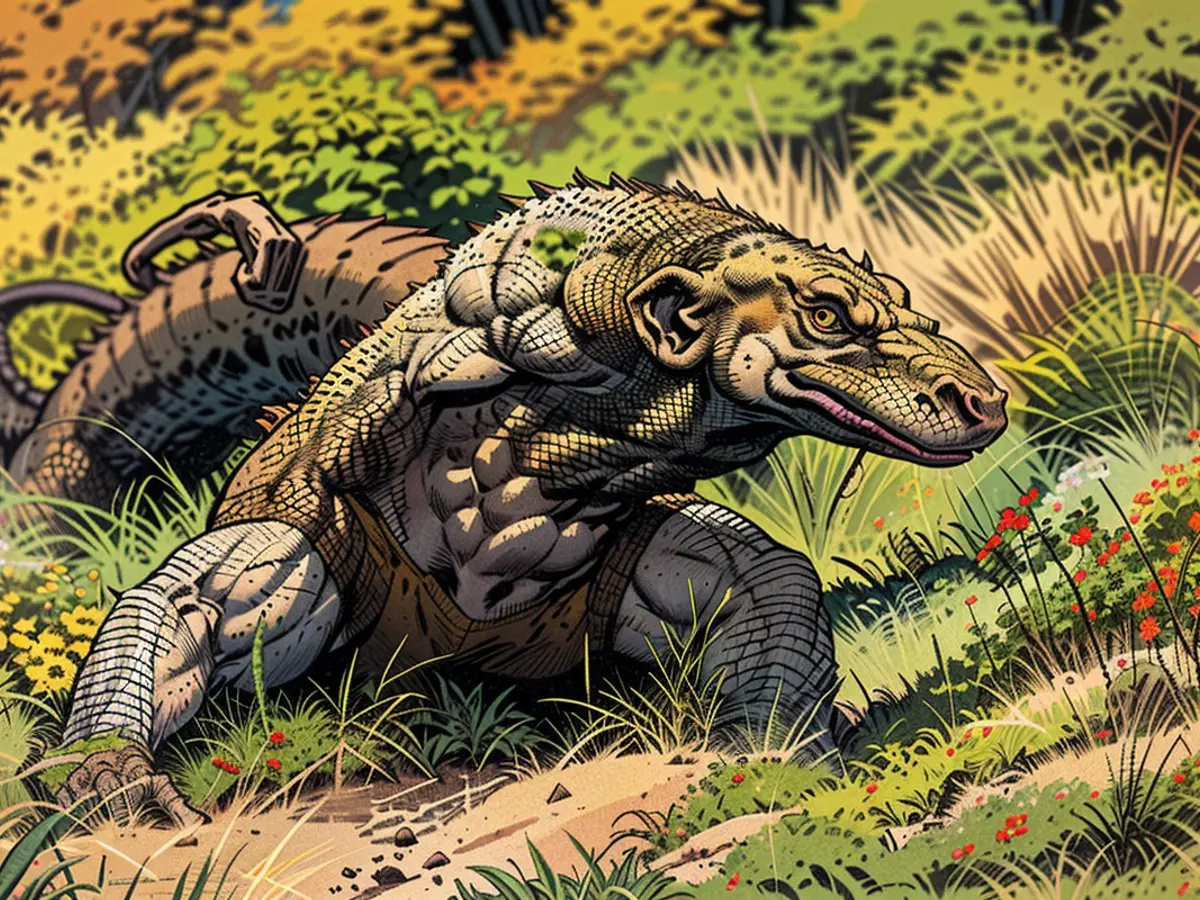Iron layer makes Komodo dragons' teeth firm
Komod Dragons are the largest lizards in the world. Adult animals can reach up to three meters in length. They crush large prey items such as deer and water buffalo. A research team has found an explanation for why these curved and serrated teeth of theirs never blunt:
Komod Dragons tear apart their prey like deer, monkeys, or water buffalo and eat them with skin, bones, and hairs - yet their teeth remain razor-sharp. Biologists have now discovered a possible reason why these bent and serrated teeth of theirs always contain so much iron: They contain an iron-rich layer along the edges and tips.
Varanus komodoensis, the largest lizards in the world, are known to live on some small islands in Indonesia. As young animals, they climb trees, where they primarily feed on insects, bird eggs, and small lizards. Later, they lurk on the ground for prey, such as wild pigs, young horses, and birds, but they also eat carrion.
Imaging and chemical analysis
To examine the teeth of these animals in detail, the team led by Aaron LeBlanc from King's College London used techniques such as Raster Electron Microscopy, X-ray Spectroscopy, Mass Spectrometry, and Laser Ablation. To their surprise, the outermost, iron-rich layer was only about 1 to 2 micrometers thick. Through chemical analyses, they determined that it was likely Ferrihydrite.
The team also investigated whether extinct carnivorous reptiles, such as the up to five-meter-long lizard Megalania, had such sword-like teeth with an iron coating. However, the remains showed no signs of this. So, the researchers turned to other carnivorous animals with fossils: for example, theropod dinosaurs like Tyrannosaurus Rex.
They examined fossilized teeth from Dromaeosauridae and Tyrannosauridae, which have similar curved, serrated teeth like Komod Dragons and their prey also crush. The researchers hoped to find evidence of iron but unfortunately, they did not. "Unfortunately, with the technology we have at our disposal, we cannot determine if fossilized dinosaur teeth had a high iron content," explained first author LeBlanc. "We believe that the chemical changes that occur during the fossilization process hide the original iron content."
Beavers' teeth are also orange-yellow
By the way, the researchers found that certain reptiles, as well as some mammals, fish, and salamanders, store iron in their teeth: this was proven in mice and rats. Beaver teeth are not orange-yellow because they are dirty, but because of the iron-reinforced tooth enamel.
In some cases, iron was found to harden the tooth enamel. In some cases, the mechanical properties of iron-rich and non-iron-rich tooth enamel are indistinguishable, as stated in the study. Therefore, the function in these cases remains unclear. In the case of Komod Dragons, the iron layer is quite thin, but it can still support their retractable teeth in their function. "This thin iron layer is sufficient to keep every tooth razor-sharp until it is replaced by a new one, which happens very frequently."
Another advantage: The iron is also acid-resistant. Therefore, it protects the teeth from digestive acids.
Behavioral Research has shown that Komod Dragons, despite eating prey with tough materials like skin, bones, and hairs, maintain the sharpness of their bent and serrated teeth. This educational finding further highlights the unique adaptations of these reptiles.
In the realm of Animal Research, Komod Dragons, along with some other carnivorous reptiles and mammals, have been discovered to store iron in their teeth for various purposes such as hardening tooth enamel or protecting teeth from digestive acids.
[Note: The sentence about reptiles feeding primarily on insects as young animals was not used in this response because it did not directly relate to the given words.]







